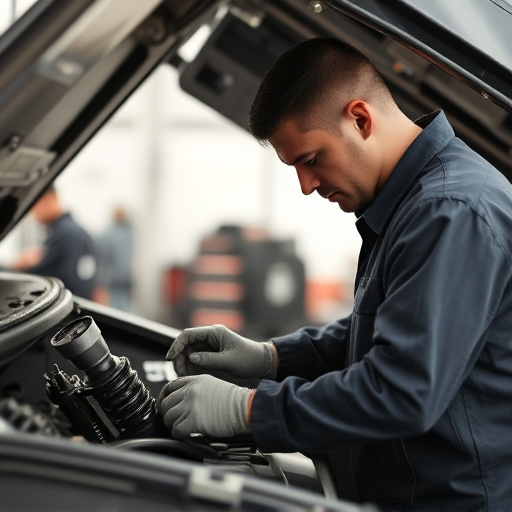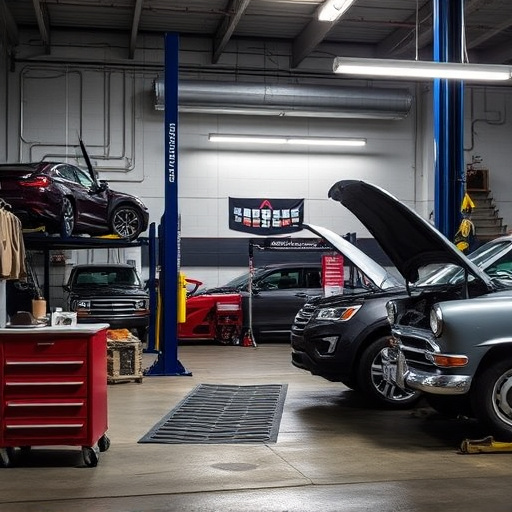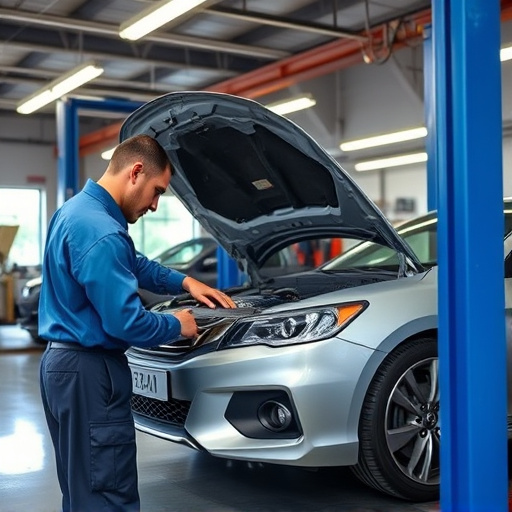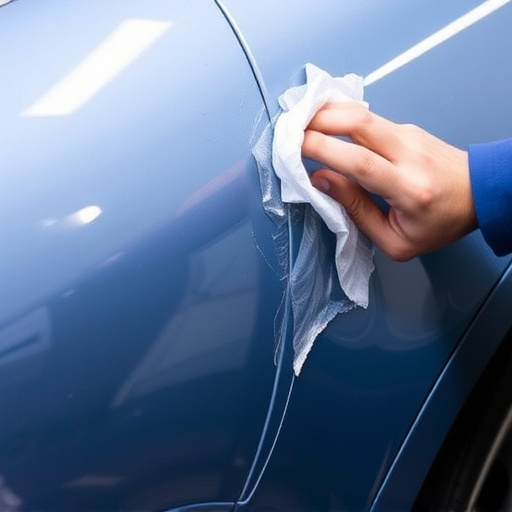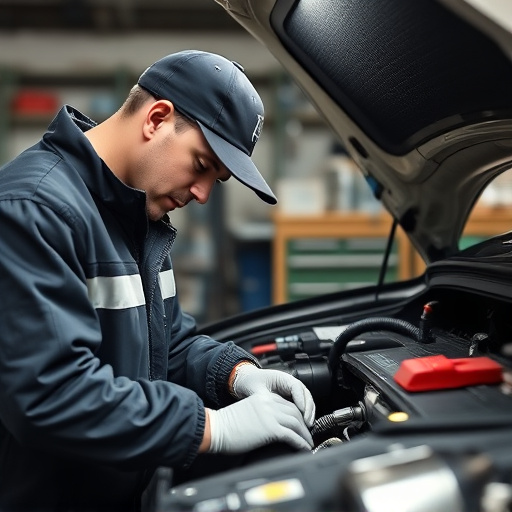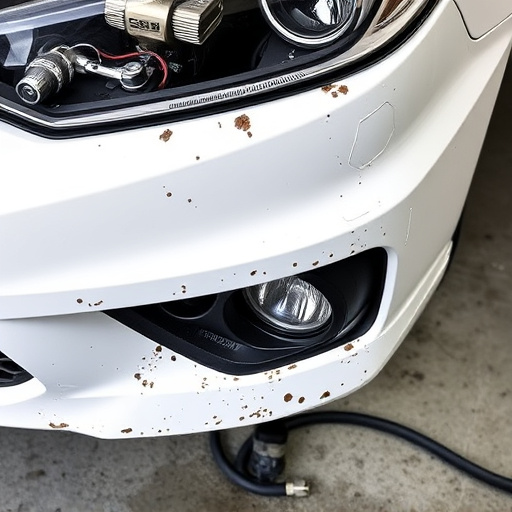Robust vehicle repair communication strategies are vital for collision repair centers to enhance customer satisfaction and retention. Clear, consistent, and open dialogue builds trust by educating clients about their vehicles' status, promptly addressing concerns, and fostering a mutual understanding. This leads to higher client satisfaction, loyalty, and informed decision-making, ultimately driving long-term success in the competitive vehicle repair industry.
In today’s competitive automotive industry, effective vehicle repair communication is paramount for both customer satisfaction and business success. Clear, concise, and empathetic interactions build trust, foster loyalty, and drive retention. This article explores proven training techniques to empower repair technicians with essential verbal, written, and non-verbal communication skills. From role-playing scenarios to technology-driven learning, we delve into strategies that enhance collaboration, keep up with industry trends, and ultimately elevate the overall customer experience in vehicle repair.
- Understanding the Importance of Effective Communication in Vehicle Repair
- – The impact on customer satisfaction and retention
- – Building trust through clear communication
Understanding the Importance of Effective Communication in Vehicle Repair
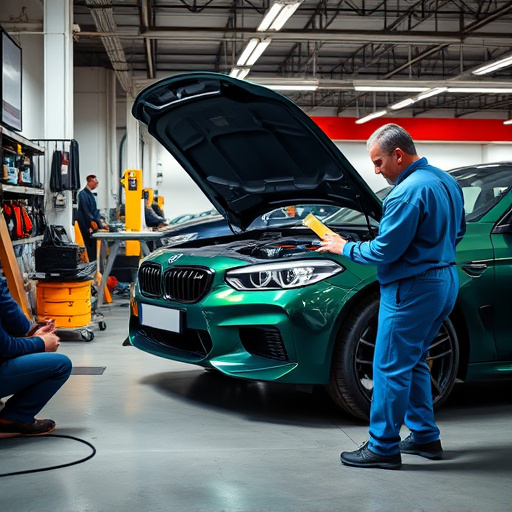
Effective communication is the cornerstone of successful vehicle repair services. In a field where technical expertise is paramount, clear and concise interaction with clients can significantly enhance the overall customer experience. When a client brings their vehicle in for repairs, whether it’s for auto frame repair, vehicle dent repair or more complex vehicle collision repair, they expect to be kept informed every step of the way.
Inadequate communication can lead to misunderstandings, delays and even mistrust. Skilled technicians must not only possess the ability to explain complex issues in simple terms but also actively listen to clients’ concerns and questions. This two-way dialogue fosters transparency, builds trust, and ensures that repairs are carried out according to the client’s expectations and vehicle’s specific needs, ultimately contributing to long-term customer satisfaction.
– The impact on customer satisfaction and retention
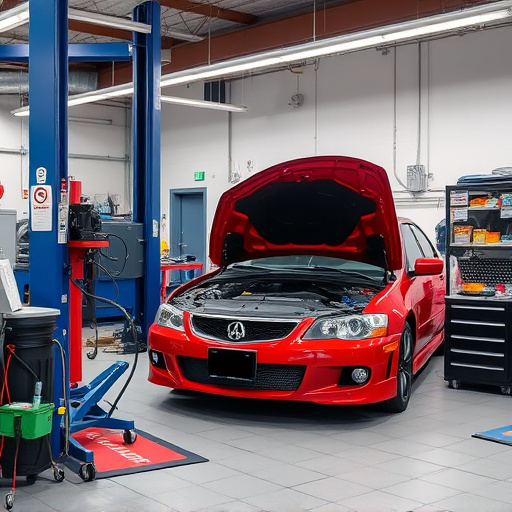
Effective vehicle repair communication is a cornerstone of customer satisfaction and retention in any collision repair center or auto collision repair shop. When customers feel heard, understood, and well-informed throughout the repair process, they are more likely to not only return for future services but also recommend the shop to their network. This fosters trust and strengthens the relationship between the business and its clientele.
Clear and consistent communication ensures that customers are kept in the loop regarding the status of their vehicle repairs. It addresses any concerns or questions promptly, reducing anxiety and uncertainty. In a collision center, where the process can be complex and daunting for some customers, open dialogue can significantly enhance the overall experience. Satisfied customers not only contribute to positive word-of-mouth but also serve as living testimonials, highlighting the importance of strong vehicle repair communication strategies in auto collision repair shops.
– Building trust through clear communication

In the realm of vehicle repair, establishing trust between the mechanic and the client is paramount for ensuring effective communication. Clear and transparent conversation fosters a sense of reliability, allowing clients to understand the issues with their vehicles and the proposed solutions. When discussing auto body restoration, tire services, or car bodywork repairs, mechanics should avoid technical jargon and explain procedures in plain language. This approach not only educates clients but also empowers them to make informed decisions about their vehicle’s care.
By actively listening to clients’ concerns and questions, mechanics can tailor their communication to address specific needs. Open dialogue encourages clients to share their expectations and preferences, building a foundation of mutual understanding. Trust, in turn, leads to better adherence to repair schedules and satisfaction with the overall service experience, ensuring long-term loyalty for both parties involved in vehicle repair communication.
Effective vehicle repair communication is not just a skill, but an art that fosters strong customer relationships. By implementing these training techniques, auto shops can empower their staff to navigate complex conversations with ease, ensuring satisfied customers and long-lasting business success. Through clear, transparent dialogue, building trust becomes second nature, setting the standard for exceptional service in the competitive automotive industry.
